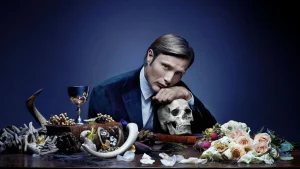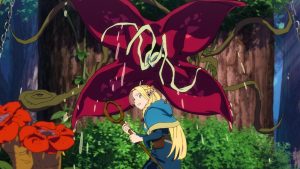On October 10, 2007, Valve forever changed the landscape of PC gaming with one release: The Orange Box. Bundling together the legendary Half-Life 2, its two episodic expansions, Team Fortress 2, and Portal, this single package was nothing short of impressive in terms of raw gaming value. Never before had the gaming world received such a wild collaboration of high-quality products, all for one singular box price; a total absurdity. If anything, it was a brazen statement of confidence from a studio that had mastered storytelling, multiplayer design, and innovation all at once.
In a time when most developers sold individual titles for full price, Valve handed players five groundbreaking experiences for the cost of one, and the result was immense. The impact was immediate and seismic. PC gamers saw it as an unmatched bargain, while console players on the Xbox 360 got a rare, jealous glimpse into what made Valve so special. Nearly two decades later, The Orange Box still stands as one of the most defining releases in gaming history, a snapshot of Valve at the height of its creative power.
The brilliance of The Orange Box was that it didn’t rely on a single flagship game to carry its crown. Indeed, each title inside this incredible bundle represented a distinct corner of Valve’s design philosophy, showing how versatile the studio truly was. Half-Life 2 and its episodes were the narrative heart, continuing the story of Gordon Freeman in a world that blurred the lines between cinematic storytelling and first-person shooting. Team Fortress 2, on the other hand, brought the color and personality of class-based shooters to life, setting the tone for future multiplayer hits that wear its influence on their sleeves. Then came Portal, the unexpected and unusual gem, offering a puzzle experience so creatively defined that it became an instant classic. The Orange Box wasn’t just any old bundle of video games thrown together in a package. It was a bundle of video games that, for all intents and purposes, could stand on their own and still be immensely successful. That’s what makes this package so absurd.
Generally speaking, what tied these games together was Valve’s unmatched understanding of player engagement. Even prior to The Orange Box, the studio was already crafting mega hits with the release of Half-Life in the late 90s. This game is still considered legendary to this day, and it cemented Valve’s presence. Valve is still reaping the rewards for Half-Life, as it was such an unprecedented release that the reputation it granted allowed for even more ambitious projects, such as Steam and the equally legendary Half-Life 2. Then, Half-Life 2: Episode Two ended on a cliffhanger that would echo for years, TF2 built an enduring culture of humor and teamwork, and Portal gave birth to a thousand memes with GLaDOS’s biting wit. Sell all of these titles altogether? Well, let’s just say that few collections in history have managed to feel so complete yet so varied, each title complementing the others in ways that made the whole greater than the sum of its parts.
Beyond its content, The Orange Box also symbolized the maturing of digital distribution. Valve had already launched Steam a few years earlier, but this bundle cemented its relevance. Players were encouraged to experience these games digitally, a model that would soon become the standard across the industry. What was once considered an odd experiment in PC game delivery became the cornerstone and symbolic holy grail of modern gaming ecosystems. Valve was building the foundation for how players would access them for generations to come, and The Orange Box solidified their mission statement.
Eighteen years later, the legacy of The Orange Box is hard to overstate. Portal became a cultural touchstone, spawning a sequel that elevated its narrative to something beyond the series’ already mythic status. Team Fortress 2 grew into one of the longest-running multiplayer games of all time, its influence visible in modern titles like Overwatch and Valorant. Even the unfinished Half-Life 2 saga still fuels discussion and speculation, a testament to how deeply it resonated with fans. Many, to this day, are still waiting for the follow-up, whether that’s the fabled Half-Life 3 or Episode 3. And to put Half-Life 2’s legacy into perspective, if Valve decided to drop Episode 3 today, for a game that’s nearly 21 years old, it would still sell like a brand-new blockbuster. Nevertheless, hypotheticals aside, The Orange Box represents the pinnacle of Valve’s creativity, a moment when the company’s identity as a developer, innovator, and community builder all aligned perfectly.
What made it so enduring wasn’t just the quality of its games, but the spirit behind them. Valve treated The Orange Box as a gift to players, an act of goodwill that respected their time and intelligence. In an industry now dominated by microtransactions, subscriptions, and endless DLC slop, the sheer generosity of this collection feels almost impossible to replicate in this modern era of gaming we’re in. It reminded players that great games could still speak for themselves without needing to nickel and dime their audience. Why that needs to be a reminder, though, is beyond comprehension. You’d think such an obvious truth would be front and center, yet so many of today’s gaming developers and publishers still haven’t grasped the simple lesson Valve taught decades ago.
Today, the echoes of The Orange Box still ripple through the gaming world. Not only can it still be purchased today, but also, every major release that tries to offer value or multiple experiences in one package owes something to Valve’s boldness in 2007. It remains the gold standard of compilation releases, one that not only captured the imagination of millions but also proved that creativity and generosity could coexist in commercial success. Eighteen years later, The Orange Box remains revered as the day Valve didn’t just release a set of games; they defined an era.
What do you think? Leave a comment below and join the conversation now in the ComicBook Forum!
The post 18 Years Ago, Valve Made History With One Legendary Release appeared first on ComicBook.com.




